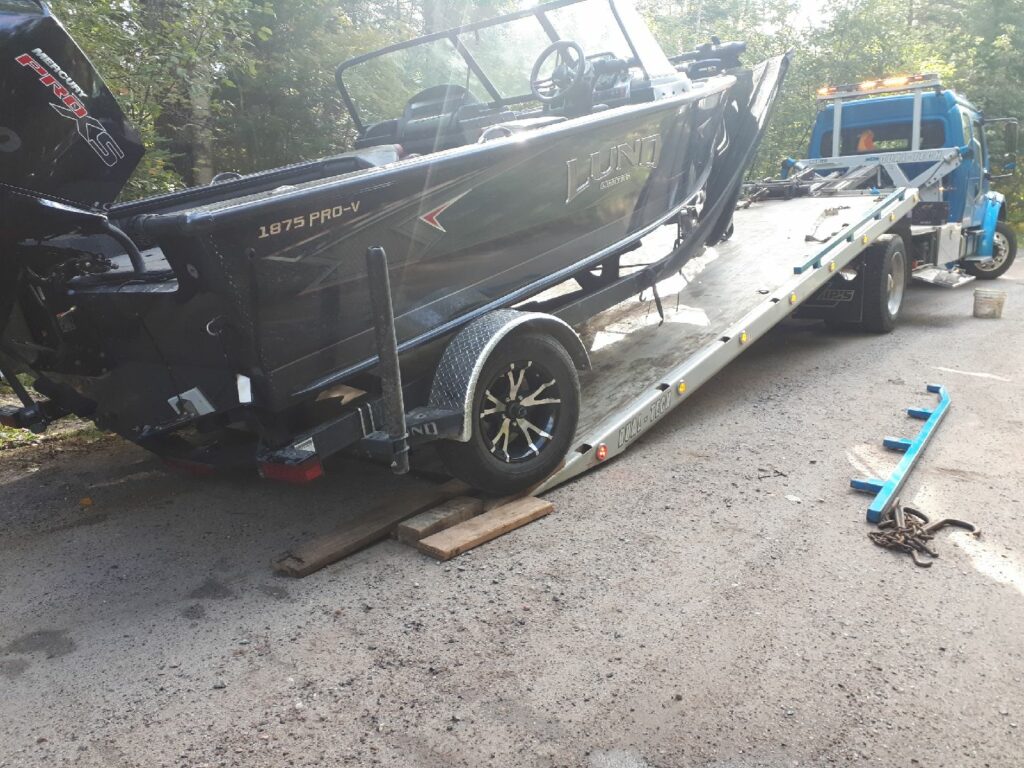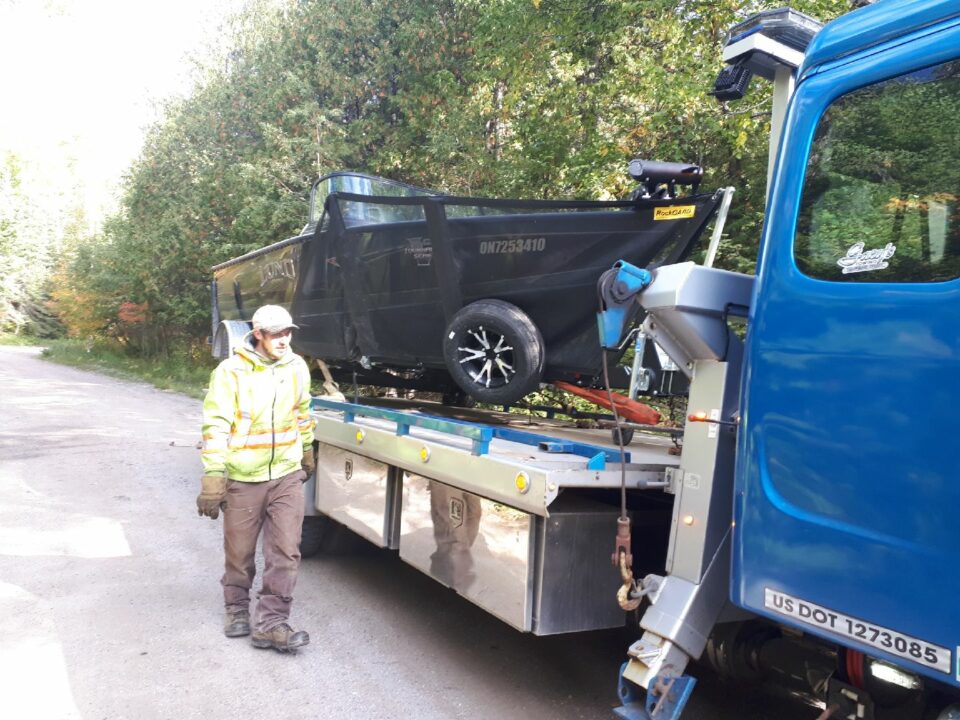If you like to fish the lakes, river and reservoirs of northern Ontario, there is a good chance you have done some boat trailering. Basic tin boats can be put on the backs of trucks, and that saves you the adventure of trailering. However, the majority of modern fishing boats require a trailer. I do a ton of trailering through the spring, summer and fall. Because of this, I’ve had many things happen. Here are just a few of my more memorable trailering adventures, as well as a few tips on how to be ready for the inevitable.
Boat Trailer Truths
Let us get one thing out of the way at the start of this article. Most boat trailers are not really meant for hard, consistent use. The typical boat trailer is used a few times a year at most. That use would be opening weekend, sometime in June, the August long weekend and then labour day weekend. Then the boat and trailer go back under the tarp. For folks who have a camp, the trailer might be used to bring the boat out in the spring, and then back home in the fall. My boat trailers are seeing upwards to a hundred trips a year, or more. Some of those adventures are on dirt or gravel roads. So, keep this in mind when you read these stories.
Paint Pain
Trailering boats means that rocks, boulders and even logs can come flying at your boat from off the roads. This can be hard on paint and cause expensive to fix dents in hulls. When I was doing a lot of tournaments, the boats were trailered all over northwestern Ontario. One time, while heading to Nakina for a bass event with my oldest son, I had an unfortunate incident. We were driving on the highway to Nakina and a truck carrying logs went by. The truck kicked up an enormous boulder and it went flying into the hull of my brand-new Lund Pro V. I stopped to inspect and found a fist-sized dent in the bow of the brand-new boat. It was not a cheap fix. Another time, during a bass tournament near Atikokan, the highway was being resurfaced. This time, millions of split-shot sized rocks were laid down prior to the surfacing. We had to drive 20 km on it and there was a spray of rock the entire time. When we got back to the hotel, the black paint was covered with a hundred or more pock marks. Another expensive fix. In recent years, all my boat trailers have received after market rock guards. They cost a few bucks up front but have more than paid for themselves.

Tire Trials
Trailers require wheels, and that means tires. Tires are rubber and have the irritating habit of blowing. Back in the good old bad old days of trailering, most tires were simply too small and skinny to take the battering repeated trips dealt. I can remember having both trailer tires blow on the same trip. Leaving a boat and trailer behind on a bush road or highway is not only a pain but leaves your rig open to potential theft. Luckily, I’ve found most anglers and boaters honest and helpful. For instance, earlier this season, I was trailering near the Nipigon River and had a tire blow on the trailer carrying my 18-foot Lund Pro Guide. The tire didn’t just blow, it exploded. The force was so strong it blew off the fender and sent it flying down the road. While I was replacing the tire, nearly every vehicle (mostly anglers) stopped to see if I needed help. Thankfully, I did not. The spare was pumped up, I had a lug nut tool, and the garage jack got the trailer up and tire changed quickly. We were back and rolling in 15 minutes.
The Other Stuff
Trailers have bunks and rollers to hold the boats on. They also have axles and bearings that need to be greased and maintained, lest bad things happen. Over the course of 30 years plus of boat ownership (and nearly 30 different boats), nearly everything that could break on a trailer of mine, has broken. I’ve had bunks fall off and rollers snap. One time, after a particularly bad trailer on a dirt road, I was parking and another truck pulled up. “Is this yours?” he said. “In his hand was one of the metal guides that keep the boat centred on the trailer. It had snapped clean off.
Maybe my worst trailer incident happened four years ago, and it was easily the least expected. I was heading home on the last day of guiding season, on a dirt road. I took a corner a little tight and the wheel of my trailer dropped into an unseen hole. The whole rig rocked but I popped out. I didn’t hear a tire go, so I thought I was ok. Not so fast buckaroo. The whole axle shifted on the trailer, and both tires – though not blown – were jammed and unable to turn. The problem was I was on the middle of the road, and it was a somewhat well used one. So, I had to back it up to park it safely. Backing up the trailer meant the tires just skidded and both blew. So, there I was, with a large boat, and trailer that could not be towed. A flat bed was ordered up and the next day, the boat was lifted onto the truck and brought back to Thunder Bay. The final bill cut mightily into my profits the previous week.
Despite all that, I still love boating, angling, guiding and, yes, trailering. I just hope for the best and try to be ready for the worst!




